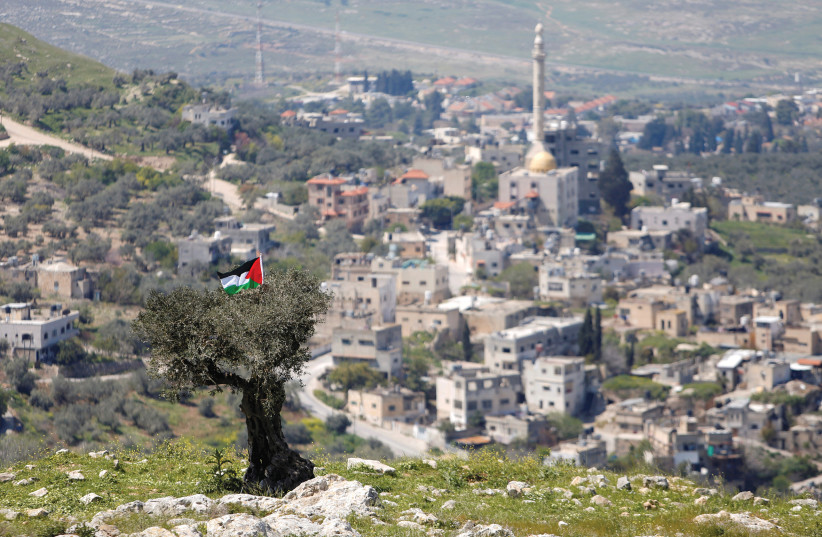A Civil Administration strike delayed this week’s hearings on the authorization of 863 Palestinian homes in Area C of the West Bank and the advancement of 2,223 settler homes.
The Higher Planning Council for Judea and Samaria, which had been slated to debate the plans on Tuesday and Wednesday, canceled the hearings, and no new date has been set. No hearings are expected to be held this week.
The Biden administration and the left-wing flank of the government opposed plans to advance settler homes, while right-wing politicians from the opposition and settler leaders objected to plans for Palestinian homes.
The council meeting would have marked the first large-scale advancement of settler building since Prime Minister Naftali Bennett took office in May. The council is expected to meet four times a year to advance settler plans, but last convened in January prior to US President Joe Biden’s inauguration.

The agenda item on the authorization of Palestinian homes in Area C was rare and was seen as an attempt to mollify US anger over settlement advancement.
All settler and Palestinian plans were in Area C of the West Bank, which is under IDF military and civilian control. Palestinians hold that Area C is part of their final future borders, while the Israeli Right holds that this territory – where all the settlements are located – must be part of Israel’s final borders.
In advance of the meeting, the right-wing NGO Ad Kan analyzed the five Palestinian plans, noting that they disrupted the territorial contiguity of the settlements and strengthen the Palestinian hold on the territory. It also noted that the master plans were drawn up with funding from European countries or the European Union, which also pledged money for infrastructure.
It showed a map of the village of Khirbat Zakariya, for example, which is set to receive authorizations for 50 homes, 20 of them retroactively, over an area of 12.5 hectares (31 acres).
Ad Kan said the village of 260 people is situated between the Gush Etzion settlements of Alon Shvut and Rosh Tzurim.
The plan was first submitted in 2014 and was debated three times, with the last hearing held in 2019, Ad Kan explained. It added that France planned to donate €1.24 million for infrastructure attached to the plan.
The second Gush Etzion plan is for 150 units at the village of al-Masara near Route 3157, which is home to some 950 Palestinians. The EU has pledged to donate €2.46m. for infrastructure for the plan, Ad Kan said, adding that the master plan covering 32 hectares was first submitted in 2011 and was last debated in 2019.
The plans in the Jenin region were larger, the NGO said, and include one at Bir al-Basha for 233 units over 95 hectares in a village of 1,455 people located on both sides of Route 60. The master plan was first submitted in 2014 and discussed nine times until 2020, Ad Kan explained.
The EU plans to donate €3.5m. toward infrastructure for the plan, Ad Kan said.
The master plan for Khirbat Aaba, a village of 530 people, will cover 41.5 hectares and was drafted with funds from the Belgian government. It was first submitted in 2015 and discussed 10 times until March 2020. The British government plans to spend €1.41m. on infrastructure. The village is sandwiched between two swatches of territory in Area A, which is under the auspices of the Palestinian Authority, and is located in the area of the two former settlements of Ganim and Kadim. They were among four settlements, including Homesh and Sa-Nur, that Israel forcibly demolished in 2005 in northern Samaria as part of its Disengagement Plan.
Alon Cohen-Lifshitz of the left-wing NGO Bimkom said that these were minor plans, in already built-up Palestinian areas that represented only a fraction of the needs of the Palestinians in Area C.
